Loved and loathed, Israel’s ousted long-term PM made his mark on the country at home and abroad.
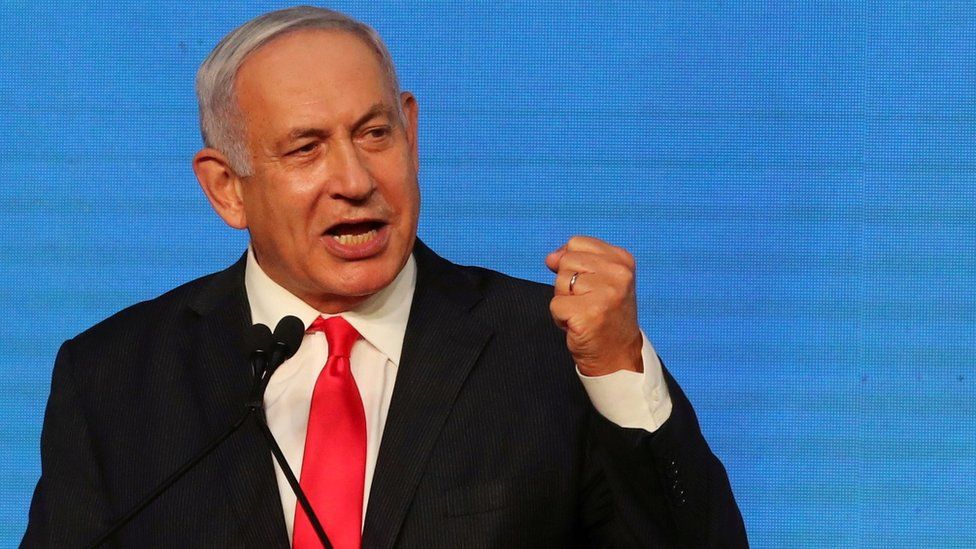
image copyrightReuters
He had been called “the King of Israel” and “the great survivor”: for a generation, Benjamin Netanyahu, or “Bibi,” as he is popularly known, dominated Israeli politics.
Known for his combative style, the country’s longest-serving leader played a key role in its drift to a more right-wing, nationalist outlook.
On the international scene, he has been the face of Israel, speaking in fluent US accented English and ensuring his small country punches above its weight.
For one biographer, a main part of Mr Netanyahu’s legacy has been to oversee a change which “totally shifts the paradigm” away from seeing Israel only through the prism of its long-standing conflict with the Palestinians.
“It was seen as the key to solving all the problems of the Middle East,” says Anshel Pfeffer, author of Bibi: The Turbulent Life and Times of Benjamin Netanyahu. “That’s been turned on its head.”
“Despite being further away from than ever from solving the conflict, [Mr Netanyahu] has just had four diplomatic agreements with Arab states, Israel has got better relations with the world and, prior to Covid, there was a decade of uninterrupted economic growth.”
It was a quarter of a century ago that Mr Netanyahu became Israel’s youngest ever prime minister, with a narrow victory over then Labour leader, Shimon Peres.
The election came just months after the assassination of Israeli Prime Minister Yitzhak Rabin, who had signed the breakthrough peace deal, the Oslo Accords, with the Palestinians.
Mr Netanyahu had appealed to voters by strongly opposing the peace talks, which he saw as jeopardising Israel’s security.
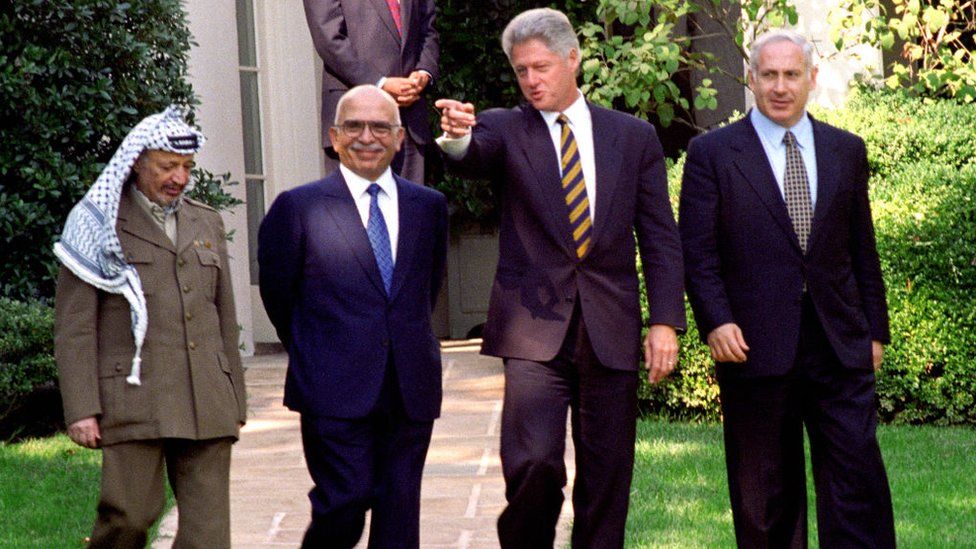
image copyrightGetty Images
But once in power, he gave in to pressure from Washington to sign further deals with Palestinian leaders, which ultimately led to the collapse of his first right-wing government.
Later, outside the prime minister’s office, he remained a popular figure in the Likud party and served as a minister at the time of the 2000-2005 Second Palestinian Intifada or uprising against Israeli occupation.
He burnished his security credentials, criticising concessions to the Palestinians including Israel’s withdrawal from the Gaza Strip and several West Bank settlements.
Returned to power in 2009, Mr Netanyahu expressed qualified support for an independent Palestinian state, with the condition that it would have to be demilitarised and formally recognise Israel as a Jewish state.
Palestinian leaders rejected those terms and on Mr Netanyahu’s watch, Israel’s presence continued to grow in the occupied West Bank.
Talks with the Palestinians mostly went onto the back-burner.
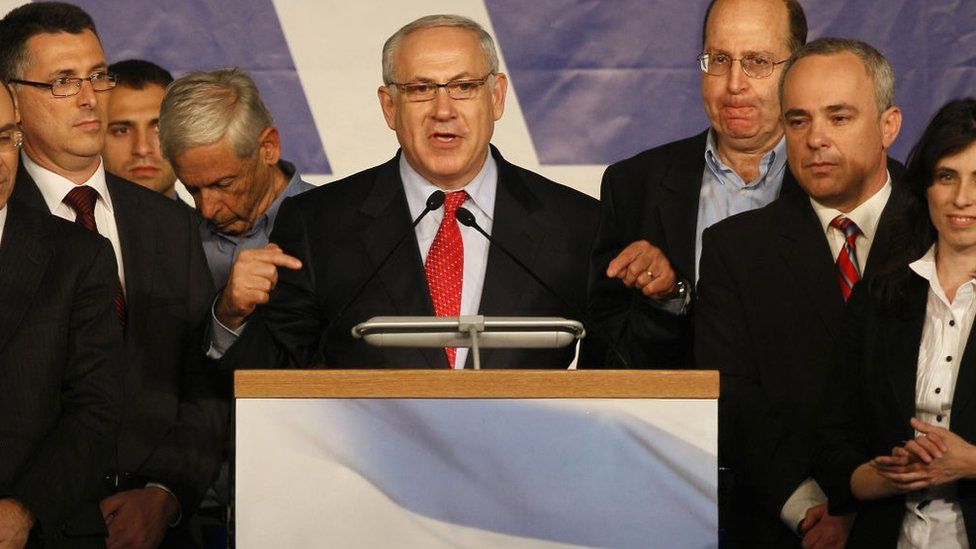
image copyrightAFP
Mr Netanyahu preferred to believe the unsolved conflict could be managed as a security issue. His supporters argued there was no partner for peace.
Deadly fighting continued to break out between Israel and militants in Gaza. In 2014, there was international criticism of the high number of Palestinians killed in a large-scale military operation to stop rocket fire into southern Israel.
That raised tensions with the Obama administration which were already building over its Iran policy.
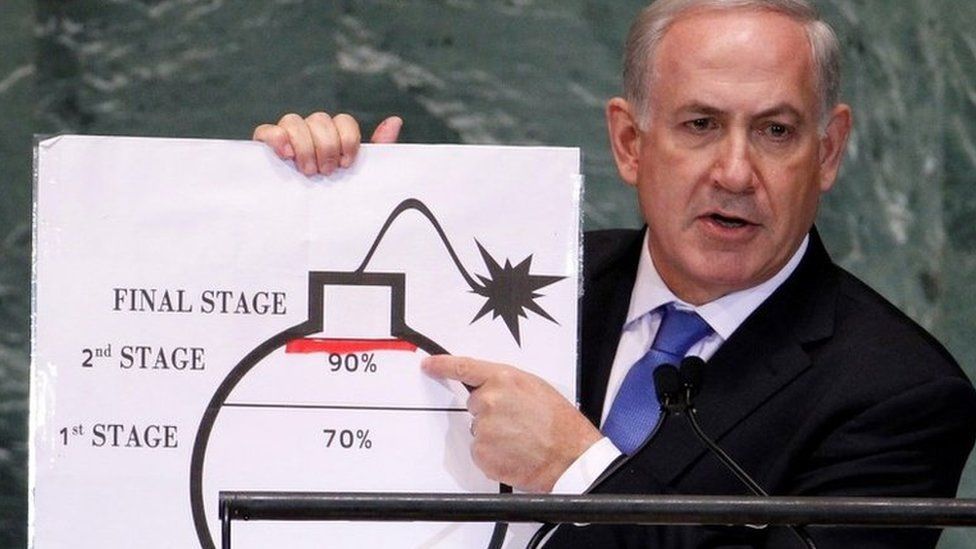
image copyrightReuters
In early 2015, as the US led talks to curb Iran’s nuclear ambitions, Mr Netanyahu angered the president by going behind his back to address the US Congress directly.
He told lawmakers a prospective deal posed a “grave threat, not only to Israel but to the peace of the entire world”.
But soon relations with Israel’s strongest ally were to change dramatically.
Mr Netanyahu called President Trump his country’s “greatest friend” ever in the White House.
The US recognised Jerusalem as Israel’s capital, moving its embassy here from Tel Aviv, overturning decades of US policy and international consensus.
Those moves infuriated the Palestinians – who want East Jerusalem as the capital of their own hoped-for state – and caused them to break off ties with Washington.
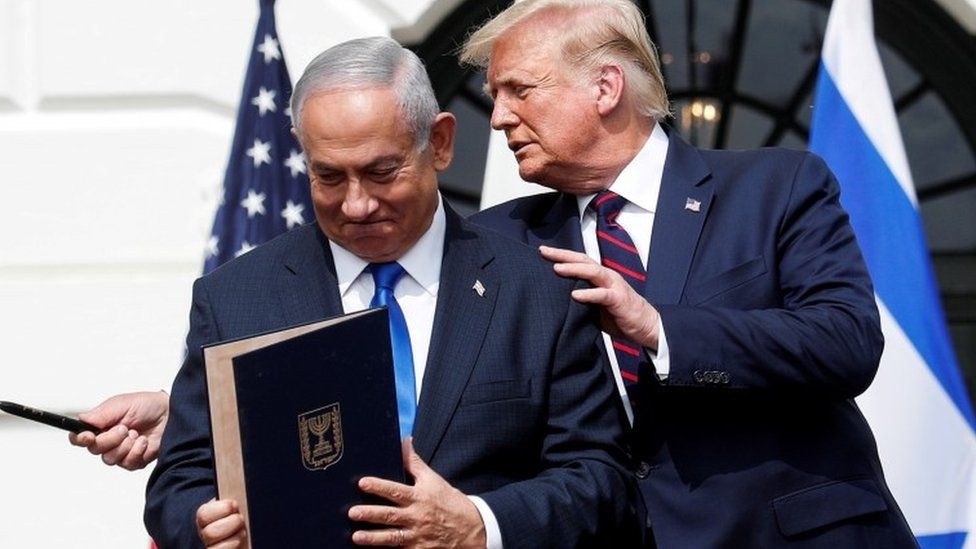
image copyrightReuters
The Americans also withdrew from the 2015 Iran nuclear pact, in a step hailed by Mr Netanyahu.
When it finally arrived, the long-awaited Trump peace plan for Israel and the Palestinians – much heralded by its proponents as “the deal of the century” – was heavily tilted in Israel’s favour. It was never implemented.
Mr Netanyahu took personal credit for the diplomatic developments, along with historic deals, brokered by the US, to normalise Israeli relations with Arab League countries: the United Arab Emirates, Bahrain, Sudan and Morocco.
Despite his success on the global stage, Mr Netanyahu had growing problems at home.
The prime minister was under police investigation for allegedly accepting lavish gifts from businessmen as bribes and offering favours to try to get more positive press coverage.
He remains on trial, denying the charges against him and calling them a political witch-hunt.

image copyrightReuters
Israel has become increasingly polarised: outside a recent court hearing, two counter-protests were taking place.
“He’s doing everything he can to escape justice and he will take 9 million citizens down the drain only to escape justice,” said Nurit Gil in the anti-Netanyahu camp.
“They are trying to do a governmental coup,” claimed a Netanyahu supporter, Shoshana Idisis. “We believe Netanyahu is the one and only leader. He’s not perfect but he didn’t do anything that they are saying.”

image copyrightReuters
For many Israelis, the protracted legal process has been tied to a long period of political stalemate – which has resulted in four inconclusive general elections in two years.
“It’s absolutely crazy,” Times of Israel political correspondent Tal Schneider told me after the latest vote. “We’ve never experienced anything like this since the establishment of the country in 1948.”
“It’s been really tiresome for people. The problem, of course, is that if you don’t have a functioning government, you don’t have a budget and full working services.”
It remains to be seen whether the new, fragile unity government will be able to put Israel “back on track” as Mr Netanyahu’s replacement, Naftali Bennett has promised.
Parties from across the political spectrum have come together in an effort to cast off Mr Netanyahu’s divisive shadow.
However, with their deep, ideological differences there are many sensitive policies they will want to kick into the long grass.
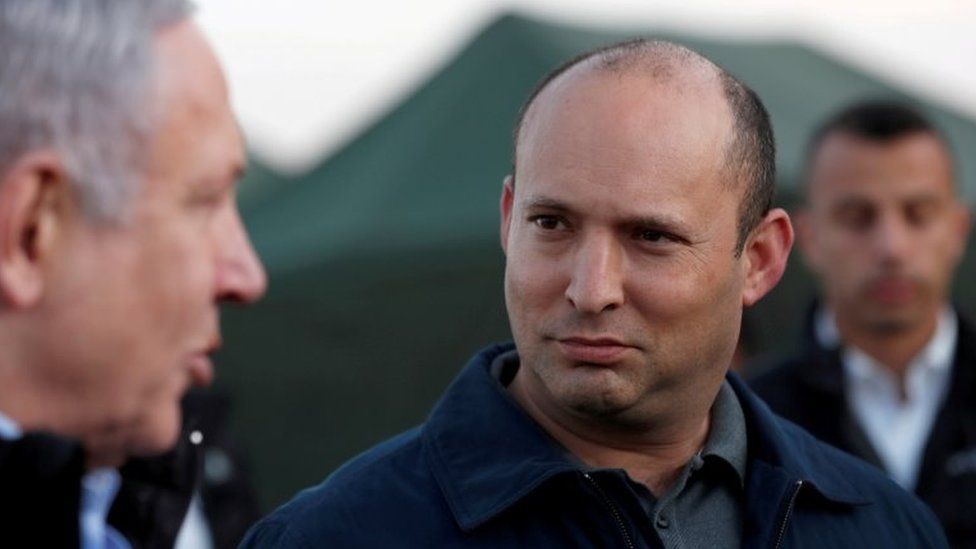
image copyrightReuters
Mr Netanyahu, who is 71, has indicated that he plans to stay on as leader of his Likud party which controls a quarter of parliamentary seats.
A masterful political strategist, in opposition he will look to exploit the weaknesses of the governing coalition.
Already he has tried to discredit Mr Bennett, his one-time chief of staff, accusing him of committing “the fraud of the century” to create a left-wing government which would, he said, imperil Israel.
The former King has not given up hope of regaining his crown.